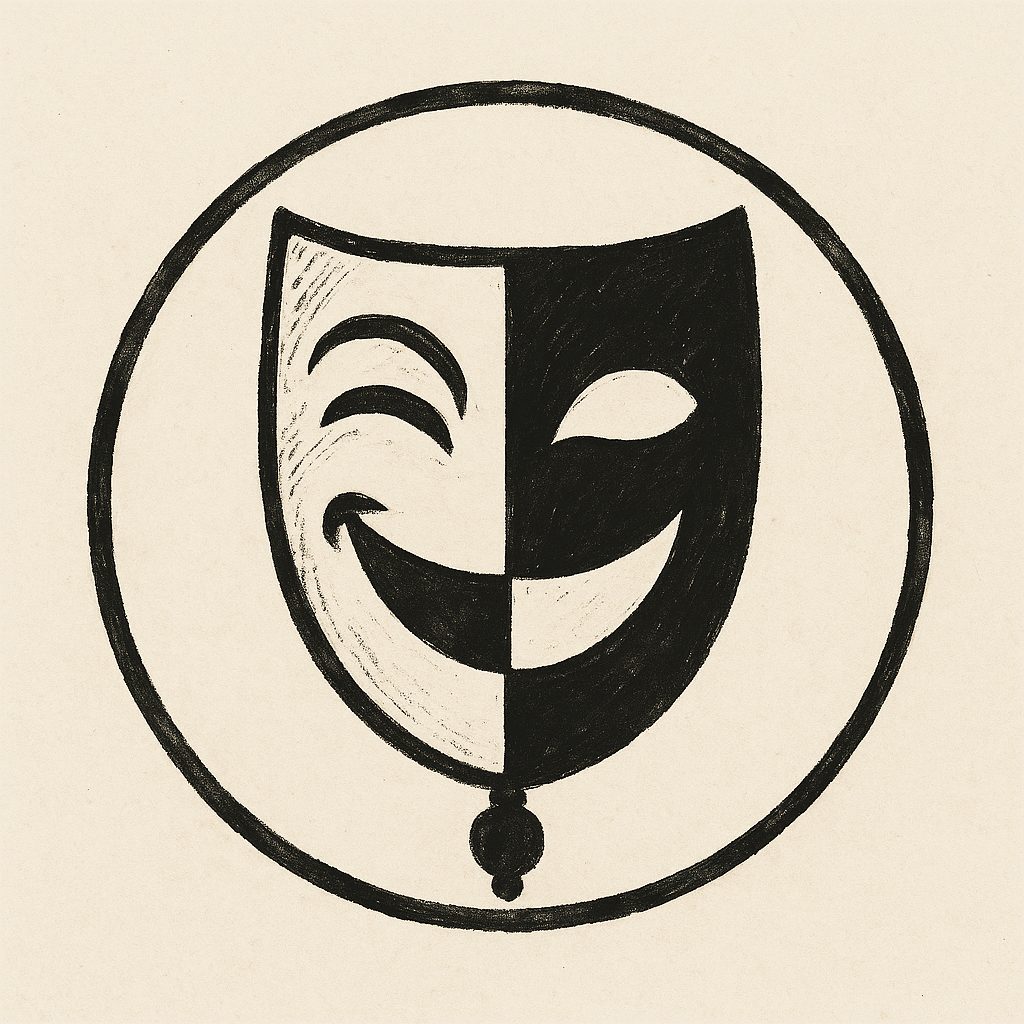Elustra
Goddess of Humor, Tricks, and Deceit
Description of the Church
The Church of Elustra, if it can even be called a "church," is a scattered and ever-changing society of jesters, illusionists, spies, and skeptics. Known as The Laughing Veil, it has no central temple, no permanent clergy, and no official doctrine. Its members believe that truth wears many masks and that divine insight often comes in the form of laughter, embarrassment, or bewilderment.
To outsiders, the Church is disorganized and irreverent—bordering on heretical. To insiders, it is a network of secret wisdom, uncomfortable truths, and sacred unpredictability. Fools and tricksters are the priests, and their rites are jokes with sharp teeth.
While many view Elustra’s faith as dangerous or blasphemous, others see it as a necessary counter to hubris and stagnation. After all, who better to humble tyrants, disarm zealots, and challenge the powerful than the god who reveals their absurdity?
Core Beliefs
- Laughter is sacred, especially when it reveals truth.
- Every mask hides a truth, and every truth is a kind of mask.
- No authority is beyond mockery, not even Elustra themself.
- Chaos and contradiction are natural; consistency is often a convenient lie.
- Deceit can be a form of mercy or revolution, depending on the hands it’s in.
Religious Structure
There is no hierarchy, only reputation. The Church thrives on stories, reputations, pranks, and parables, not on formal ranks.
- The Grand Jest – A mythic figure said to be the true leader of the faith—if they exist at all. Every generation has someone claim the title, often to great effect.
- Harlequins – Senior performers, tricksters, or agents of the Church who orchestrate large-scale spectacles. Many operate under assumed names.
- Whispercloaks – Espionage-trained faithful who expose corruption, unravel conspiracies, or spread confusion among enemies of the Laughing Veil.
- Chucklepriests – Wandering fools who bless towns with riddles, street performances, and tales that unsettle the status quo.
- Mummers – Novices in theatrical masks who train in the sacred arts of illusion, satire, and subversion.
Rituals and Practices
- The Fool’s Baptism – A ritual humiliation meant to cleanse pride and bind a new follower to the god of mischief.
- Jest of the Veil – A masked play or staged deception that reveals an uncomfortable truth or confronts hidden hypocrisy.
- Riddlewake – A funeral where mourners speak in riddles or nonsense, celebrating the departed by turning grief into laughter.
- Mock Holy Days – Celebrations where the rituals of other gods are imitated and twisted—not out of disrespect, but to examine their flaws.
Followers
- Performers, playwrights, and jesters, especially those who use humor to provoke change.
- Spies, saboteurs, and con artists, who view their work as divine mischief.
- Cynics and skeptics, drawn to Elustra’s disdain for certainty and orthodoxy.
- Revolutionaries and reformers, who use satire to expose injustice or tyranny.
Temples
- Most "temples" of Elustra are theaters, puppet booths, underground taverns, or secret rooms behind stage curtains. Common elements include:
- The Mirror of a Hundred Faces, used in rites of identity.
- The Laughing Mask, passed from fool to fool.
- The Ink-Well of Contradiction, in which all official records are signed in a flourish of nonsense.
- Any place where the powerful feel nervous and the truth is dressed in satire might secretly be a temple to Elustra.
Conflict and Controversy
- Despised by Aergethyr’s Church, which sees Elustra’s deception as criminal and dangerous.
- Rivaled by Malaclypse, whose chaos is raw and terrifying—Elustra’s is calculated and teasing.
- Some sects engage in false miracles to expose the gullibility of crowds, angering traditional faiths.
Divided between:
- Truth-Fools, who believe in revealing hypocrisy through trickery, and
- and Mask-Dancers, who believe deception is an end unto itself.
Relationships with other gods
Central Architect: Elustra emerged not from reverence, but from irreverence—the moment mortals laughed at their own creations. She is the divine wink, the idea that gods, too, can be mocked. In some myths, she wasn’t made, but slipped in through a punchline no one saw coming. She reminds all that even sacred things have flaws worth exposing.
Relationship with Nahlolago (luck): Playful camaraderie. The two are frequent collaborators—one throws the die, the other rigs it for the joke. They walk together in carnivals, crossroads, and trickster dreams, whispering riddles into the ears of gamblers and fools.
Rivalry with Aergethyr (law): Open defiance. Elustra considers Aergethyr’s rigidity inherently comedic, and her priests delight in mocking courts, laws, and rituals. She doesn’t hate him—she simply refuses to treat him as untouchable. To her, the more serious the god, the better the joke.

Symbol: A grinning mask split down the middle—half comedy, half void. A dangling jester’s bell hangs from its chin.
Meaning: Duality, mischief, and the truth within the lie.
Areas of Concern: Humor, Tricks, Laughter, Deceit
Edicts: Laugh in the face of tyranny. Mock pretension. Laugh loudly. Trick the powerful; uplift the clever. Hide truth in riddles if the truth is dangerous.
Anathema: Enforcing strict order or suppressing humor.
Divine Attribute: Dexterity or charisma
Devotee Benefits:
Cleric Spells: 1st: charm, 3rd: enthrall, 6th: mislead
Divine Font: Harm or heal
Divine Sanctification: Can choose holy or unholy
Divine Skill: Deception
Domains: Pain, passion, secrecy, trickery
Favored Weapon: Whip



Comments